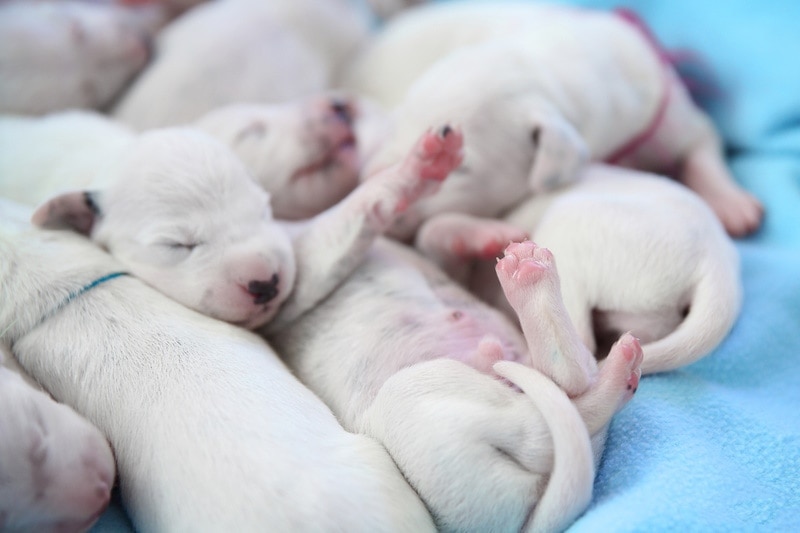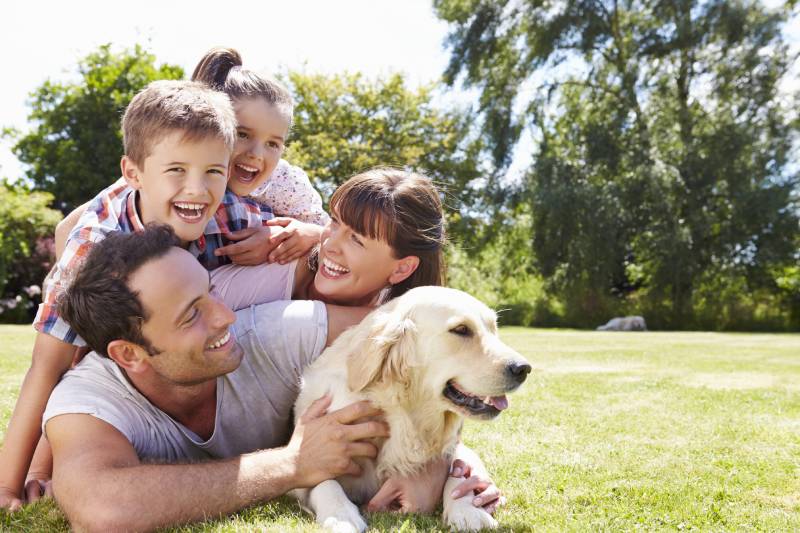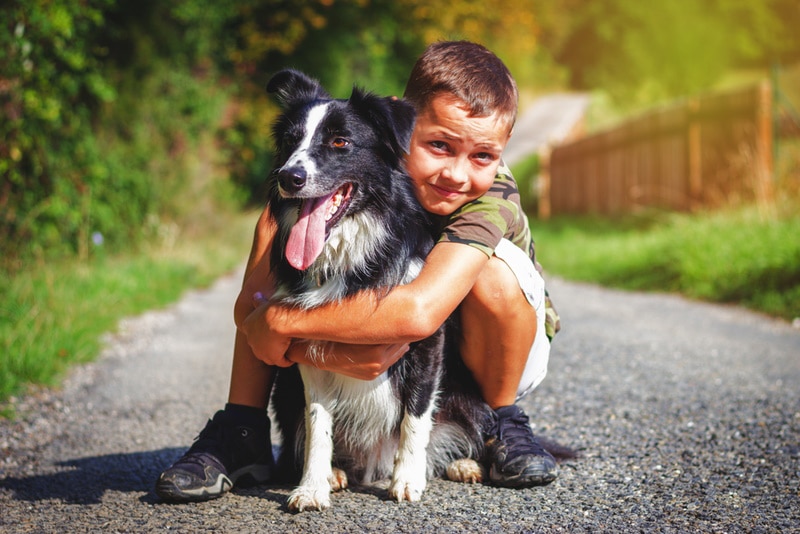Why Does My Dog Pee in the House in Front of Me? Canine Behavior Explained

Updated on
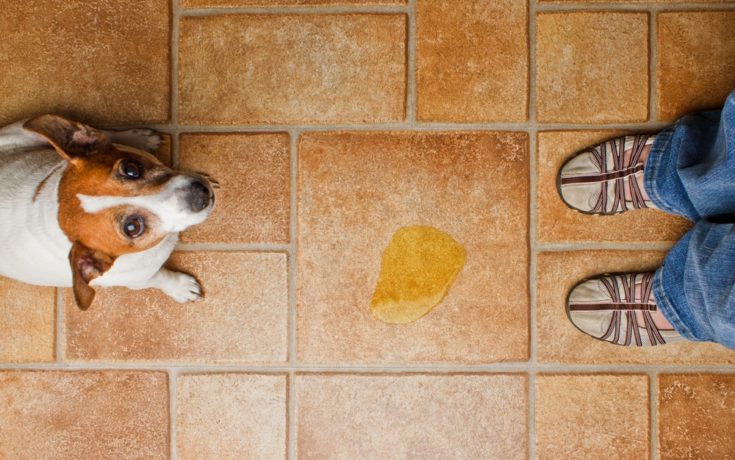
Click to Skip Ahead
A dog is a man’s (woman’s and child’s) best friend. They are loyal companions who stay by our side through thick and thin. As we care for our dogs, it’s natural to instill certain behaviors in them that we expect to stick. One of the basic things we teach our dogs from the time they are a puppy is where to relieve themselves. Taking our dogs out for a walk is not only for their enjoyment and exercise, it’s also to give them a chance to relieve themselves and do their business outdoors where we, as owners, expect it to take place. Sometimes, however, things change.
Even the best-trained dog has been known to pee inside the house. When we aren’t home or find ourselves too busy to get them outside in time, we don’t think too much about it. Then at other times, it seems as if they do this on purpose and right in front of our eyes. If you’re wondering why your dog is peeing in the house in front of you, there could be several answers to explain the issue. Fear, stress, and even illness can all play a part. Let’s take a more in-depth look so you can understand your dog’s actions and work to rectify the issue.
It’s Not Revenge or Showing Dominance
Many people feel that when their dog pees in the house and keeps contact at the same time, the dog is showing dominance. Others think they may be doing it out of revenge for a scolding or other action an owner has taken. This isn’t the case. While dogs are smart animals, they don’t sit and plot revenge. They also don’t feel the need to assert dominance over humans. If you let these myths go quickly, you’ll be able to get to the root of the real problem quicker and hopefully avoid other accidents around the house.
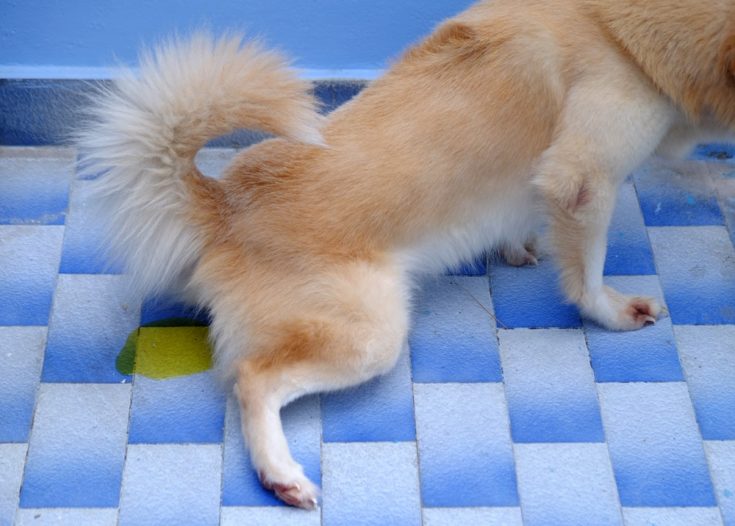
What Factors Were at Play When Your Dog Peed in the House?
Before you can discover what caused your dog to to pee inside the house in front of you,, it’s important to assess the situation. If this is new behavior and not the actions of a puppy or elderly dog, something may have triggered your dog to pee. Was the house chaotic? Was there a reason for your dog to be fearful? Did your pet show signs of pain? Assessing the situation is important, especially in new behaviors. It can help you pinpoint the issue and get your dog help if needed.
Read Your Dog’s Body Language
Your dog’s body language can tell you a lot about why they may be peeing inside the house. If they’re upset and crying when it happens, illness or anxiety could be the culprit. Wagging their tail and showing tons of affection afterward may mean your pup is peeing accidentally when it gets over-excited. Learning to read your dog’s body language is something every owner should do. It will help in all areas of pet parenting, not only when your dog does something wrong.
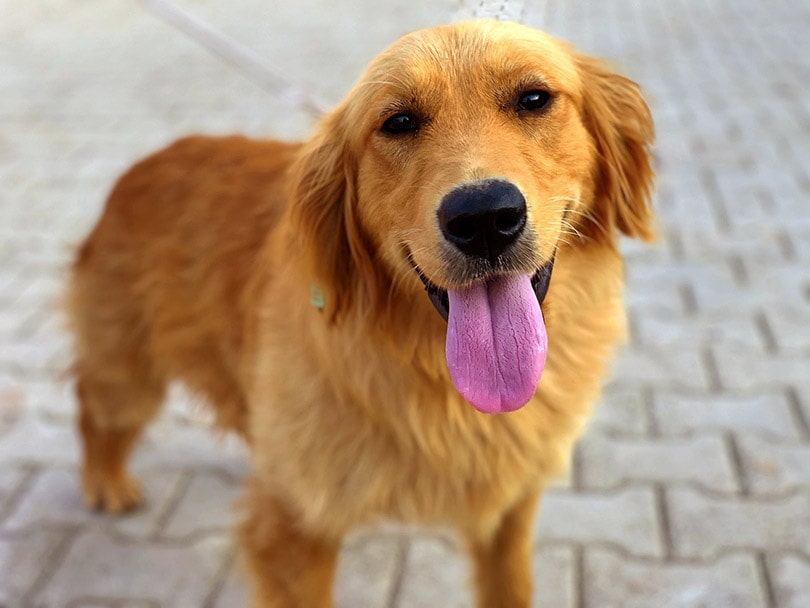
The 4 Reasons Your Dog May Be Peeing in the House
As we’ve mentioned, there are several reasons your dog may peeing inside the house in front of you. Let’s take a look at a few of them to help you better understand what’s happening with your doggo. We’ll also explain what you can do to fix the situation and make life better for both of you.
1. Illnesses
When your dog pees inside the house randomly, especially after doing so well at relieving themselves when and where they are supposed to, they could be feeling bad. If your dog has been peeing more frequently, is a bit older, or even whines and cries when they have an accident, it may be best to take them to the vet for a checkup. This will help you catch any possible infections or illnesses such as urinary tract infections, bladder stones, or even kidney disease. With proper medical care, your pupper hopefully will be back to their old self in no time.
2. Anxiety
Dogs are a lot like people when it comes to anxiety. Certain situations can upset them. This is important to keep in mind when your dog does something like peeing inside the house while you watch. Separation anxiety is common in dogs. If your pet knows when you are leaving the house and pees in front of you, it could be caused by the built-up anxiety they are experiencing. If the house is chaotic, friends over, the kids playing loudly, or something else that changes the normal function of the home, this could also make your dog go when they shouldn’t.
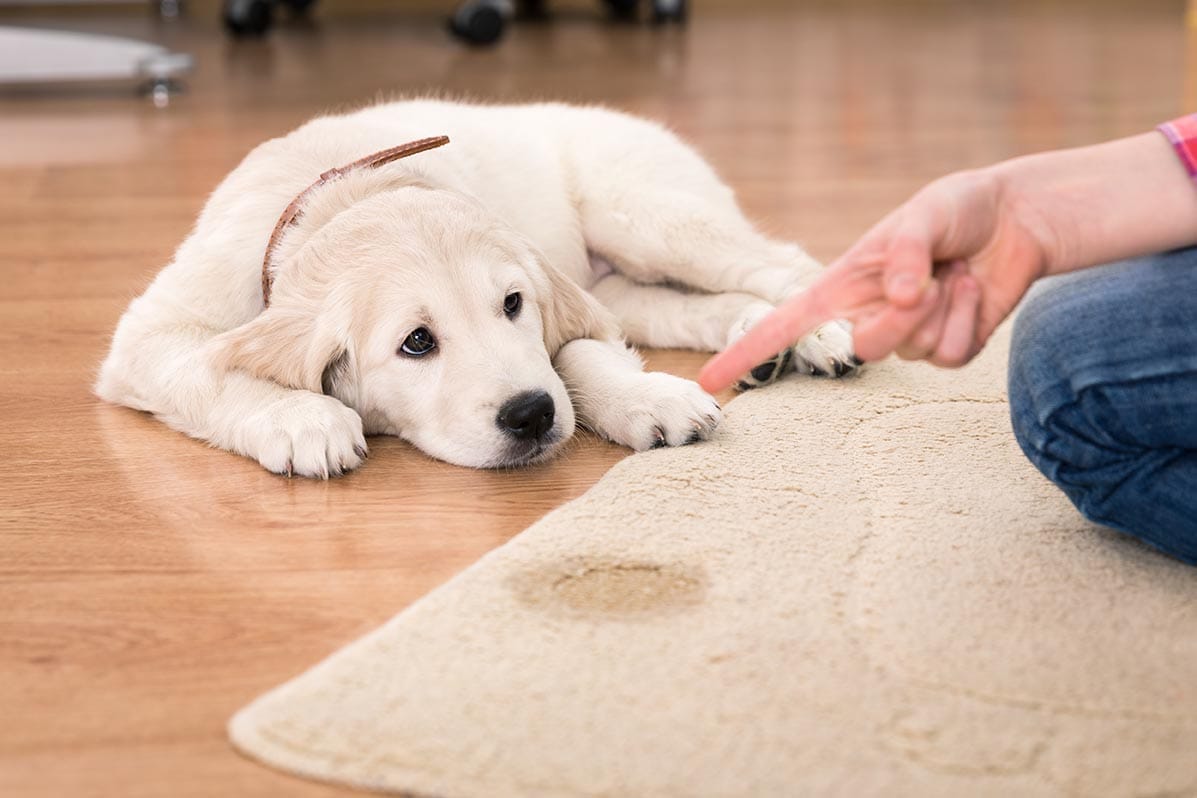
3. Fear and Submission
While we try to make our dogs feel safe inside their home, things happen that are out of our control. Perhaps there is work going on down the street or there’s a fireworks celebration taking place. New noises, whether they are in the house or not, may make your dog fearful. When this happens, they may pee inside the house. They could also be fearful of you. If you’ve been assertive or needed to scold them, peeing then tucking their tail or even showing their belly could be their way of submitting to you and trying to keep you from being angry. Try not to make your dog fearful of you. Instead of yelling at them, use a stern voice but stay compassionate.
4. Age
Young pups are still learning how to control their bladder and where you prefer them to pee. If you’re training a puppy, accidents happen. Unfortunately, however, when our dogs get older and are considered seniors, issues with bladder control happen as well. If this is the case, there may be no way to rectify the problem. Show understanding to your old pal so they don’t feel worse about their inabilities to hold their bladder. Offer to take them outside more often to help.
- Related Read: How to Get Rid of Dog Urine Smell on Tile
Conclusion
While no homeowner wants their house to smell like dog urine, understanding why your pet is having issues is the most important thing. This will allow you and your dog to stop behaviors that may be upsetting them or get them the medical attention they need if things are severe. In the end, understanding why your dog’s situation may provide you with the answers to correct their behavior and do your part to make life better for them at home.
Featured Image Credit: MCarper, Shutterstock



